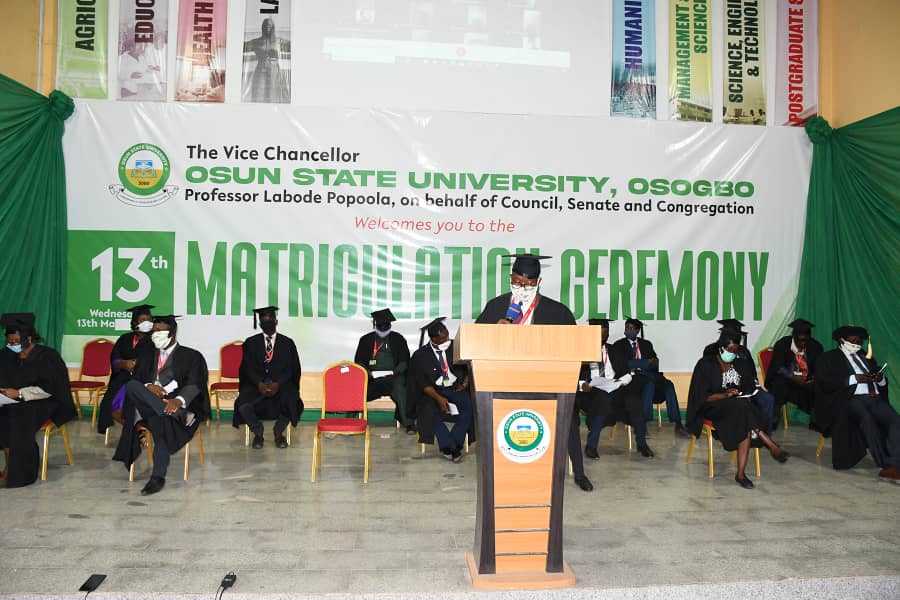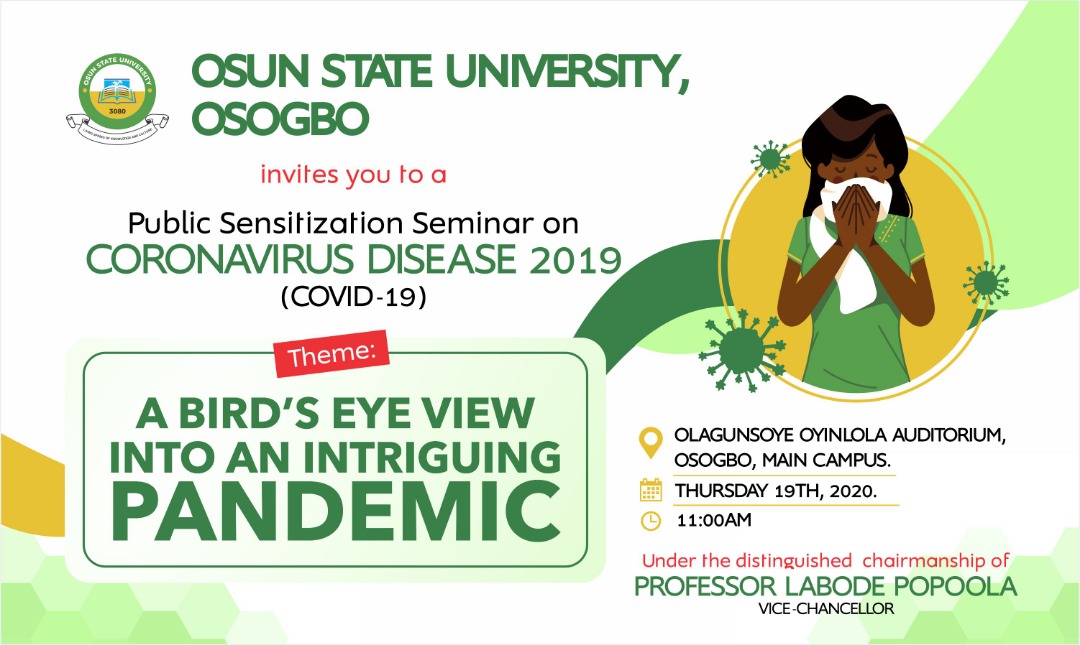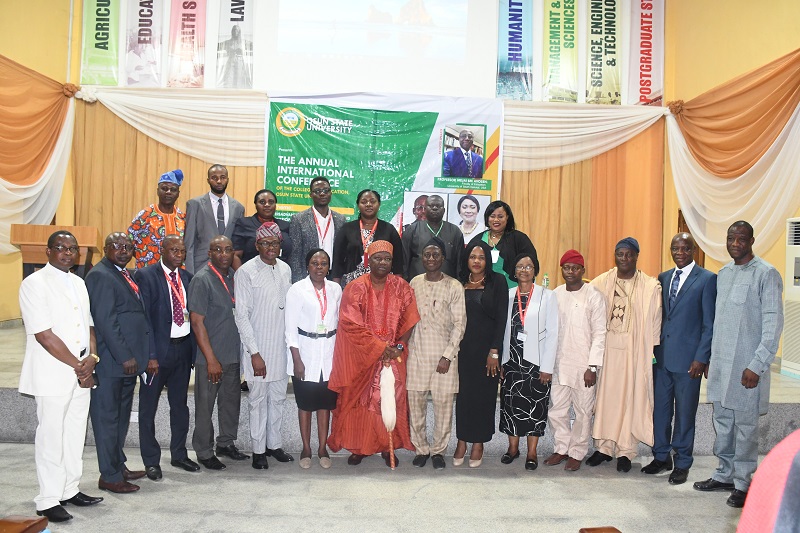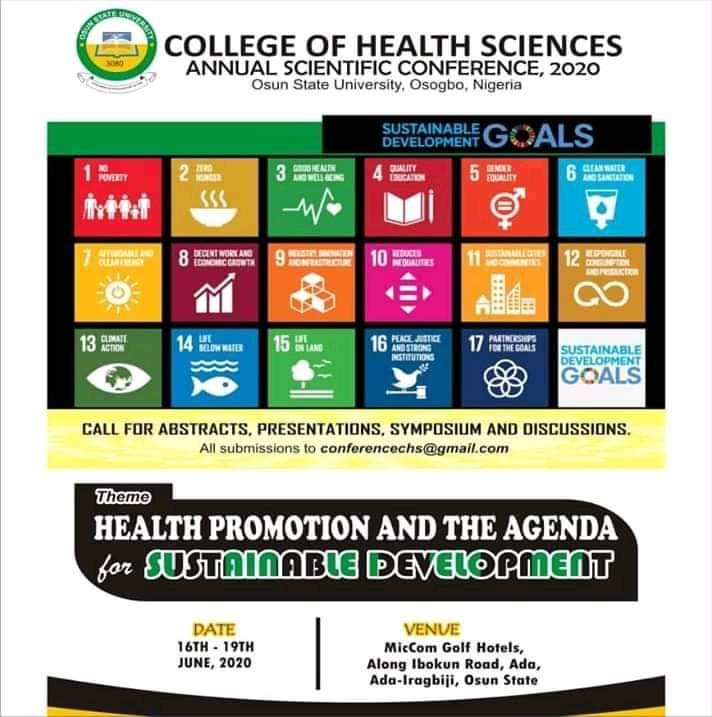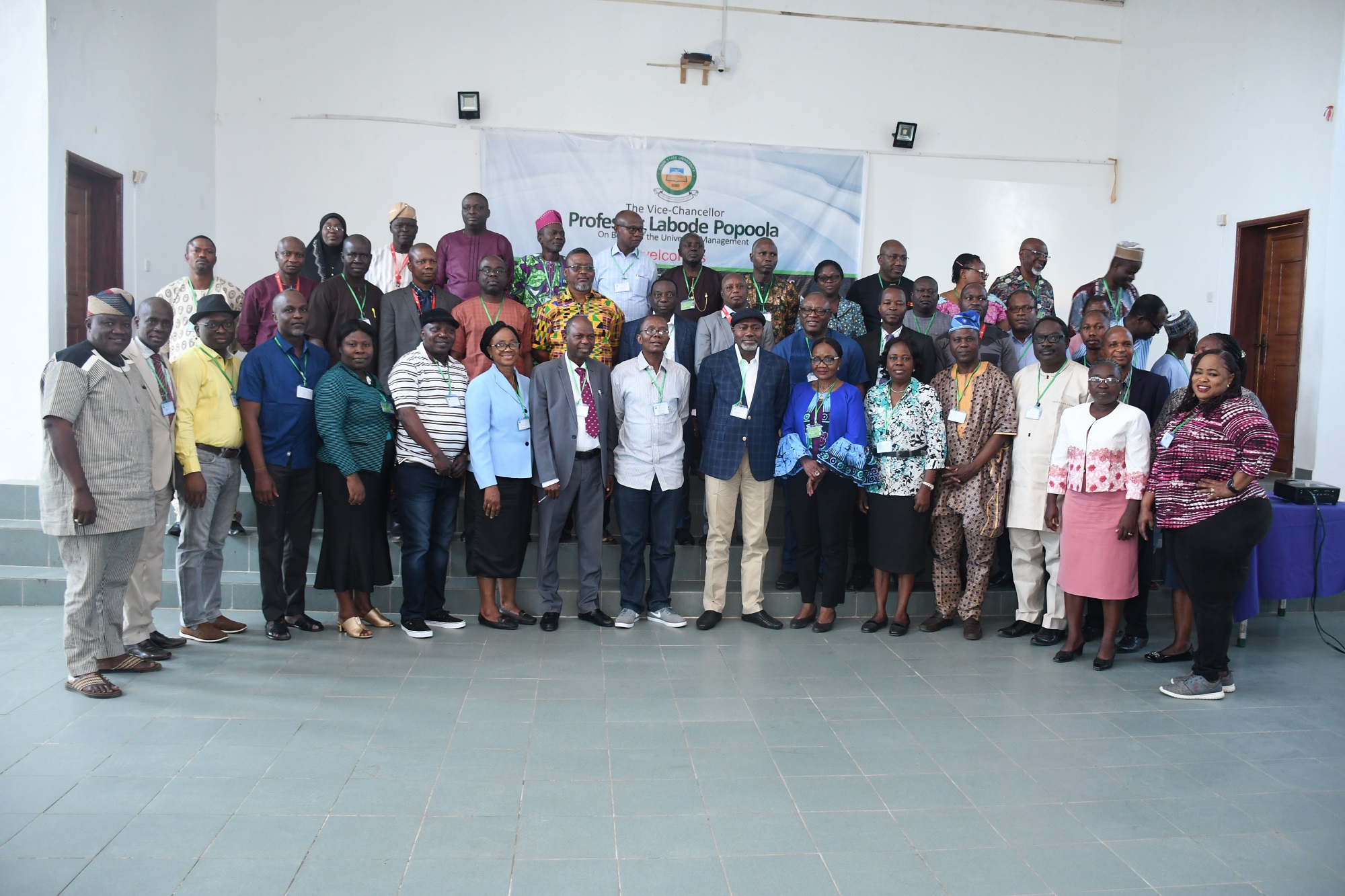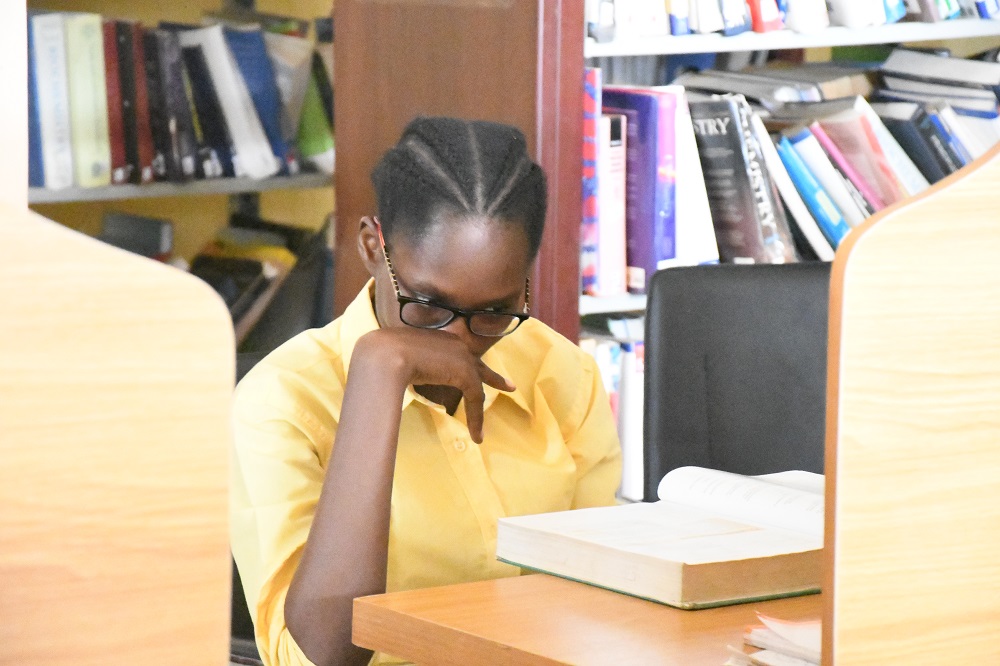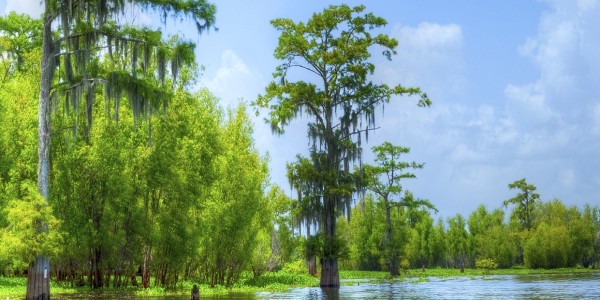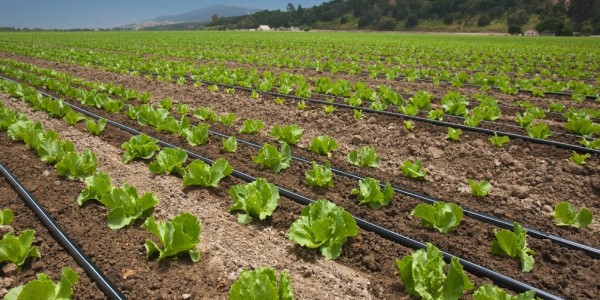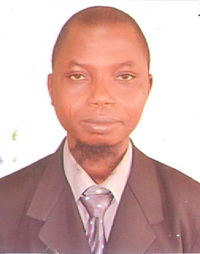 Mr. Mukail O. OYEKANMI
Mr. Mukail O. OYEKANMI
Email: mukail.oyekanmi@uniosun.edu.ng
Mukail Oyesegun Oyekanmi (ACA) attended Seventh Day Adventist Grammar School Ede and Olivet Baptist High school Oyo. He holds B.sc (Hons.) Accounting from University of Ilorin, Ilorin, Kwara State (1997). He also qualified as a Chartered Account in 2005. He started his carrier as a public Accountant at Osun State Polytechnic Irre in 2005 when he was appointed as Auditor II. He joined the services of Osun State University as one of the few Pioneer staff in 2007 when he was appointed as a Senior Accountant. He had a rear privilege of setting up the University Audit Unit and be the pioneer Ag. Head in 2007. He has also headed various Units in Bursary at one point in time or the other. He served as a member of many university committees either as a direct member or as Bursar representative.
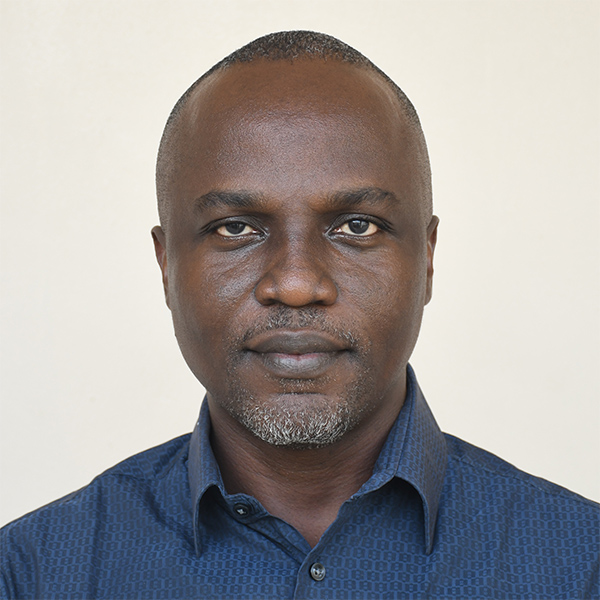 Prof. Adeunji L. KEHINDE B.Sc., M.Sc., and Ph.D
Prof. Adeunji L. KEHINDE B.Sc., M.Sc., and Ph.D
Provost/Acting Dean, College/Faculty of Agriculture
Email:
Office location: Faculty of Agriculture complex, Ejigbo Campus
Adetunji Lawrence Kehinde the Provost College of Agriculture and a Professor of Agricultural Economics with specialization in Production and Resource Economics. Apart from his role as a Provost, he is affiliated with the Department of Agricultural Economics and Extension, of his College. He trained as an Agricultural Economist at the University of Ibadan, Nigeria where he was awarded Ph.D degree (2005) in Agricultural Economics.
He has committed close to 17 years in teaching, research and service to the community.
Adetunji teaches Production Economics, Natural Resource Economics, Statistics and Research Methods and Project Monitoring and Evaluation. He was recipient of the Tertiary Education Trust fund (TETFund), Idachaba Foundation for Research and Scholarship (IFRES), African Forestry Reseach Network (AFORNET) research grants in 2014, 2007 and 2006, respectively.
His current research work is on estimating the cost of adaptation to climate change by arable crop farmers in Nigeria and analysis of harvests of selected agricultural produce in Osun state. His research publications in several peer review scientific journals traverse different areas of his specialization. Quite a number of his works has also been presented at conferences. He has attended several workshops in his academic and other professional areas. Of special notes are workshops on Quality Assurance issues and Open and distance learning education which he is passionate about.
He is currently a member of the editorial board of UNIOSUN Journal of Sciences (UJS), Managing editor of UNIOSUN Journal of Agriculture and Renewable Resources (UJARR). He is a member of Nigeria Association of Agricultural Economists (NAAE), Africa Association of Agricultural Economists (AAAE) and the International Association of Agricultural Economists (IAAE), among others.
Adetunji has been extensively involved in training farmers in areas such as farm management, and agricultural produce marketing.
List of Publications:
Some of Adetunji Kehinde’s publications are listed as follows:
1. Kehinde, A.L., Busari, A.O., Layonu, L. D. and K. F. Adesanya (2018) Effects of Climate Change on Rice and Maize Production in Nigeria from 1970 – 2012. African Journal of Sustainable Development.
2. Kehinde A. L. (2017) Strategic planning: A key to a successful journal. UNIOSUN Journal of Sciences. 2(1): 1 – 4.
3. Kehinde A.L., Apata T.G. and M.D. Matthew (2016) Assessment of Arable Crop Farmers’ Access to Fertilizer through the E-wallet Scheme in Nigeria, Uniosun Journal of Sciences 1(1) 29 – 36.
4. Temidayo Gabriel Apata, Moshood Olatunde, Adetunji Lawrence Kehinde, Olasimbo Apata, Timothy Olusola Agboola (2016) Agricultural Sector and HIV/AIDS Pandemic in Africa: The Economic Retrogression Model, Agricultural Sciences, 7, 206 -224.
5. Kehinde, A.L., Awotide, D.O., Odeniyi, K.A. and A. Ogunrinde (2015). Comparing Technical Efficiencies of Female and Male Vegetable Farmers in Osun State Nigeria. International Journal of Agriculture and Food Science 5 (1&2) 655 - 665
6. Awotide, D.O., Kehinde, A.L. and Akorede, T.O. (2015). Metafrontier Analysis of Access to Credit and Technical Efficiency among Smallholder Cocoa Farmers in Southwest Nigeria. International Journal of Business Reseach, 8 (1): 132 – 144.
7. Babatunde, F.E., Kehinde A.L. and A.B. Okesina (2014). Creating Entrepreneurial Opportunity Through Production of Jatropha (Jatropha curcas) Seedlings in Osun State, Nigeria. International Journal of Phytofuels and Allied Sciences, 3 (1): 89 - 98 (A journal of the Society for the Conservation of Phytofuels and Sciences).
8. Kehinde A.L. and M.H. Falaye (2014). Determinants of Expenditure on Fertilizer Among Arable Crop Farmers In Osun State. FUTA Journal of Research in Sciences, 10 (2): 180 – 187.
9. Kehinde A.L., Busari A.O. and Odunuga A.A (2013). Child Labour Involvement In Arable Crop Production In Iwo Agricultural Development Programme Zone of Osun State, Nigeria. Annals of Child and Youth Studies, 4 (1): 54 – 65.
10. Agbola P.O., A.A. Adewunmi, O.C. Nwoke., and A.L. Kehinde (2013). Effect of Income Diversification Strategies on Food Insecurity Status of Farming Households in Africa: Result of Analysis from Nigeria. World Academy of Science, Engineering and Technology: 949 -955.
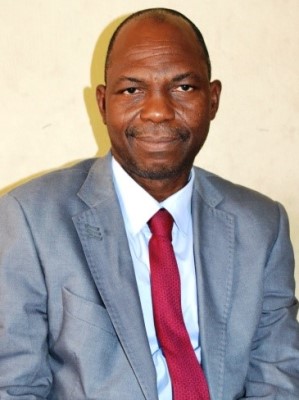 Mr. SHITTU Gafar A. Adebayo
Mr. SHITTU Gafar A. Adebayo
Acting Registrar
Email:
The Acting Registrar, SHITTU Gafar A. Adebayo was born in Osogbo, Olorunda Local Government, Osun State. He attended Oyo (now) Osun State College of Education, Ila-Orangun for his NCE programme between 1979 and 1982. He had his National Youth Service (NYSC) at the then Auchi Teachers College Auchi, Edo State between 1982 and 1983.
He taught briefly and proceeded to University of Ife, now Obafemi Awolowo University, Ile-Ife and graduated with B.Sc. (Hons.) Degree in Sociology and Anthropology in 1988. He proceeded for his Masters Degree in 1990 at Obafemi Awolowo University, Ile-Ife and had his Masters Degree in Public Administration in 1992.
Shittu was appointed into the services of the Osun State College of Education, Ila-Orangun as Administrative Officer I in 1993, he worked assiduously, got promotions steadily and was promoted to the position of Deputy Registrar in October, 2006.
He was appointed and assumed duty as a Principal Assistant Registrar in Osun State University, Osogbo on 22nd October, 2007 as one of the pioneer staff. He was the Pioneer Head of Academic Affairs Unit and the Pioneer Scheduled Officer in charge of Senate.
He was transferred to the Personnel Affairs Unit of the Registry in November, 2011. He served meritoriously in the Unit until he was appointed as the Acting Registrar on 22nd January, 2015 by Council of the University.
He has attended many International and Local Conferences from 2008 to date.
He is a member of Association of University Administrators, United Kingdom, Member, Nigerian Institute of Management and Member, Association of Nigerian University Professional Administrators (ANUPA).
He is married to Alhaja Risikat Motunrayo Shittu and blessed with children.
 Mr. SHITTU Gafar A. Adebayo
Mr. SHITTU Gafar A. Adebayo
Email:
The Registrar, SHITTU Gafar A. Adebayo was born in Osogbo, Olorunda Local Government, Osun State. He attended Oyo (now) Osun State College of Education, Ila-Orangun for his NCE programme between 1979 and 1982. He had his National Youth Service (NYSC) at the then Auchi Teachers College Auchi, Edo State between 1982 and 1983.
He taught briefly and proceeded to University of Ife, now Obafemi Awolowo University, Ile-Ife and graduated with B.Sc. (Hons.) Degree in Sociology and Anthropology in 1988. He proceeded for his Masters Degree in 1990 at Obafemi Awolowo University, Ile-Ife and had his Masters Degree in Public Administration in 1992.
Shittu was appointed into the services of the Osun State College of Education, Ila-Orangun as Administrative Officer I in 1993, he worked assiduously, got promotions steadily and was promoted to the position of Deputy Registrar in October, 2006.
He was appointed and assumed duty as a Principal Assistant Registrar in Osun State University, Osogbo on 22nd October, 2007 as one of the pioneer staff. He was the Pioneer Head of Academic Affairs Unit and the Pioneer Scheduled Officer in charge of Senate.
He was transferred to the Personnel Affairs Unit of the Registry in November, 2011. He served meritoriously in the Unit until he was appointed as the Acting Registrar on 22nd January, 2015 by Council of the University.
He has attended many International and Local Conferences from 2008 to date.
He is a member of Association of University Administrators, United Kingdom, Member, Nigerian Institute of Management and Member, Association of Nigerian University Professional Administrators (ANUPA).
He is married to Alhaja Risikat Motunrayo Shittu and blessed with children.
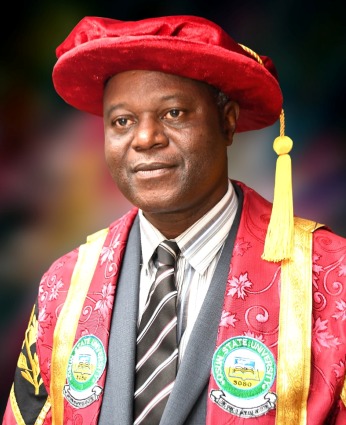 Prof. Odunayo Clement ADEBOOYE
Prof. Odunayo Clement ADEBOOYE
Email:
Professor Odunayo Clement Adebooye is a Professor of Plant Physiology/Food Chemistry, from the Department of Crop Production and Protection, Obafemi Awolowo University, Ile-Ife. Born on December 18, 1966 to Mr. David Alao Adebooye and Princess Gladys Nihinola Adebooye, he had his primary education at St. David's Anglican Primary School, Akiriboto-Gbongan between 1972 and 1978. Afterwards, he obtained his secondary school certificate at Gbongan Community High School, Ife Road, Gbongan in 1984. In 1985, he was admitted to the then University of Ife (now Obafemi Awolowo University) to study Plant Science, and bagged a B. Agric with upper second class honours division in 1990.
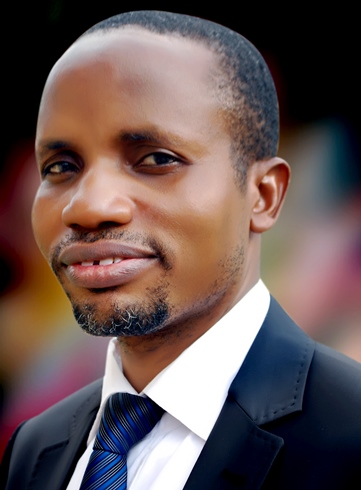 Professor ALAMU, Oguntola Jelil B.Tech., M.Sc., Ph.D
Professor ALAMU, Oguntola Jelil B.Tech., M.Sc., Ph.D
Acting Vice-Chancellor
E-mail: ,
Oguntola Jelil ALAMU is a Professor in the Department of Mechanical Engineering of Osun State University, Osogbo, Nigeria. He is a native of Iwo in Osun State, Nigeria.
He obtained B.Tech. degree in Mechanical Engineering at the Ladoke Akintola University of Technology (LAUTECH), Ogbomoso, Nigeria in 1998, M.Sc degree in the same discipline at the University of Ibadan, Nigeria in 2001 and a Ph.D degree in Mechanical Engineering (Energy Studies and Renewable Energy) at LAUTECH, Ogbomoso, Nigeria in 2008.
He is a member of notable professional organizations including Council for the Regulation of Engineering in Nigeria (COREN), Nigerian Society of Engineers (NSE), Nigeria Institution of Mechanical Engineers (NIMechE), Nigeria Institute of Management (NIM), Council for Renewable Energy in Nigeria (CREN), Committee of Deans of Faculties of Engineering & Technology in Nigerian Universities (CODET) and African Wind Energy Association (AFRIWEA).
Professor Oguntola Jelil Alamu has eighteen (18) years of teaching, research and administrative experience in Nigerian Universities. He has taught, supervised and examined students at undergraduate and postgraduate levels at LAUTECH, Ogbomoso, Olabisi Onabanjo University, Ago-Iwoye, Federal University of Agriculture, Abeokuta and Osun State University, Osogbo, Nigeria. He has also assisted Bells University of Technology, Ota in adjunct capacity. He later became an external examiner to LAUTECH, Ogbomoso, Covenant University, Ota, Nigeria, Obafemi Awolowo University, Ile-Ife, Nigeria and Tshwane University of Technology, Pretoria, South Africa.
His research efforts have gravitated around three central themes - Thermodynamics of materials, Fluid flow and Renewable energy, with major focus on biofuel. These efforts have resulted in over 60 scholarly works published both locally and in high impact international journals and over 30 national and international conference presentations. His research prowess was evident through one of his publications, which earned global ranking by ScienceDirect (Elsevier) as one of the “Top 25 most downloaded Articles” in Fuel. He has travelled far and wide and has won a number of grants. He had received invitation for research collaborations from Sanaa University, Yemen on a collaborative work on Jatropha with Taiz University to be sponsored through the British Council in Yemen. An invitation was also recently extended to him to be part of I-GIVE Initiative from University of Illinois at Urbana-Champaign.
To the glory of God, as at the end of 2014, more than 300 different research publications, authored by over 620 researchers across the globe, have made reference to his research findings and cited his publications! He is a reviewer to Elsevier as well as Taylors and Francis amongst other reputable publishers.
Professor Oguntola Jelil Alamu has held modest administrative positions in the University system. He was Coordinator, Mechanical Engineering Department (2007-2008) and Coordinator, Degree Foundation Programme (2004-2008) at Olabisi Onabanjo University, Ago-Iwoye. He served as Acting Head of Department of Mechanical Engineering, Federal University of Agriculture, Abeokuta(2008-2010), member, University Linkages and Partnership Group (2009-2010) and Associate Scientist, Biotechnology Group (2009-2010). At Osun State University, he served as the Acting Head of Department of Civil Engineering (2010-2011), Director of Academic Planning (2011-2014), University Desk Officer for Tertiary Education Trust Fund (TETFund) (2011-2014), Acting Dean, Faculty of Engineering (2013-2014) and Dean, Faculty of Engineering (2014-Date).
He is a member of University Senate and has served as member of key University committees including the Strategic Plan Committee, Admissions Committee, Staff Disciplinary Panel, Board of Postgraduate Studies, Committee of Provosts, Deans & Directors, Chairman, Senate Committee on Examination Results, Business Committee of Senate, Appointments & Promotions Committee and Development Committee amongst others. He has also served the Governing Council of the University on the Search Team for appointment of Vice-Chancellor in 2012. He is currently a member of the Governing Council of Osun State University.
He has bagged several awards and accolades. He received the Distinguished Personality Award from Ladoke Akintola University Muslim Graduate Association, Nigeria. He was also a recipient of Productive Visionary Leader of Action Gold Awards from Centre for Productive Visionary Leadership (Abuja, Nigeria).
It is worthy of note that Oguntola Jelil Alamu broke the record as the First Alumnus of LAUTECH to become a full Professor. He has just set the pace again as the First Alumnus of LAUTECH to meritoriously become Head of a University following his appointment as Acting Vice-Chancellor of Osun State University on the 3rd February, 2015.
Professor Sola Akinrinade,  BA (Hons), MA, Ph.D
BA (Hons), MA, Ph.D
Vice-Chancellor
Email:
EDUCATIONAL BACKGROUND:
- BA (First Class) and MA in History (Ife) and Ph.D. in International Relations (London)
Professor Sola Akinrinade assumed office as pioneer Vice-Chancellor of Osun State University in August 2007. He attended the University of Ife (1977–81, 1982–84) and the London School of Economics and Political Science, University of London (1985–88). He holds BA (First Class) and MA in History (Ife) and Ph.D. in International Relations (London).
Professor Akinrinade joined the services of the Department of History, University of Ife (now Obafemi Awolowo University) in 1982 as a Graduate Assistant. He rose to the rank of Lecturer I in 1988, Senior Lecturer in 1992, Reader in 1997 and was promoted Professor of History (African Political History and International Relations) in 1999.
Sola Akinrinade is married to Rita Nkechi (nee Ben-Anyiwe), a graduate of Obafemi Awolowo University, Nigeria, and Harvard University, USA.
PREVIOUS POSTS:
- 2006 – 2007: Chairman, Committee of Deans, Obafemi Awolowo University, Ile-Ife, Nigeria
- 2003 – 2007: Dean, Faculty of Arts, Obafemi Awolowo University, Ile-Ife, Nigeria
- 1999 to date: Professor of History, Obafemi Awolowo University, Ile-Ife, Nigeria
- 2001 – 2002: Research Fellow, Centre for the Study of Global Governance, London School of Economics and Political Science, University of London, England.
- 1997 –1999: Reader in History, Obafemi Awolowo University, Ile-Ife, Nigeria
- 1994: Senior Research Fellow, Centre for Advanced Social Science, Port Harcourt, Nigeria
- 1992 – 97: Senior Lecturer
- 1988 – 92: Lecturer I
- 1984 – 88: Assistant Lecturer in History, University of Ife (now Obafemi Awolowo University), Ile-Ife, Nigeria.
- 1982 – 84: Graduate Assistant, Department of History, University of Ife, Ile-Ife, Nigeria.
CO-CURRICULAR EXPERIENCE
- 2006 – 2007: Chairman, Committee of Deans, Obafemi Awolowo University, Ile-Ife, Nigeria
- 2003 – 2007: Dean, Faculty of Arts, Obafemi Awolowo University, Ile-Ife, Nigeria
- 1999 to Date: Professor of History, Obafemi Awolowo University, Ile-Ife, Nigeria
- 2001 – 2002: Research Fellow, Centre for the Study of Global Governance, London School of Economics and Political Science, University of London, England.
- 1997 – 1999: Reader in History, Obafemi Awolowo University, Ile-Ife, Nigeria
- 1994: Senior Research Fellow, Centre for Advanced Social Science, Port Harcourt, Nigeria
- 1992 – 97: Senior Lecturer
- 1988 – 92: Lecturer I
- 1984 – 88: Assistant Lecturer in History, University of Ife (now Obafemi Awolowo University), Ile-Ife, Nigeria.
- 1982 – 84: Graduate Assistant, Department of History, University of Ife, Ile-Ife, Nigeria.
CO-CURRICULAR EXPERIENCE
- 2001 – Date: External Examiner (Postgraduate) to various Nigerian Universities for MA/PhD coursework and oral examinations.
- 2002 – Date: External Assessor to various Nigerian Universities for the assessment of candidates for professorial and readership appointments in History, Political Science and International Relations.
- 2001-Date: Member, Editorial Advisory Board, Journal of Contemporary African Studies (Carfax Publishers, UK/Rhodes University, South Africa).
- 1992-95: Founding Editor, Ife Journal of History.
- 1993-94: Member, Editorial Board and Columnist, The Independent.
- 1990-95: Editorial Adviser, Odu: A Journal of West African Studies.
- 1986-87: Member, Editorial Board, Millennium: Journal of International Studies
SELECTED PUBLICATIONS AND PAPERS
- 2010: “Africa”, in James Mayall (ed.), The Contemporary Commonwealth: An Assessment, 1965 -2009 (Abingdon, Oxon & New York: Routledge), 210 – 223
- 2009: “The Nigerian Diaspora.” In Aderanti Adepoju (ed.) Working for Greener Pastures: Nigerian Migration Profile (with Olukoya Ogen). (NOMRA & the Ministry of Foreign Affairs. (with Olukoya Ogen) (in press)
- 2009: “South-South Cooperation and Economic Development: Realities and Challenges of Indo-Nigerian Economic Relations since 1959.” In Samir Dasgupta and Joy Alemazung (eds.) Global Malady in Africa: Politics, Environment, People and Developments within the International Network Context. Wimbledon: Anthem Press (with Olukoya Ogen) (in press)
- 2008: “Globalization and De-Industrialization: South-South Neo-liberalism and the Collapse of the Nigerian Textile Industry” The Global South 2 (2), Fall 2008 (with Olukoya Ogen), 159-170.
- 2007: Rethinking the Humanities in Africa (Ile-Ife: Faculty of Arts, Obafemi Awolowo University) (ed. with O. Fashina, David O. Ogungbile and O. Famakinwa) (in press)
- 2006: The Humanities, Nationalism and Democracy (Ile-Ife: Faculty of Arts, Obafemi Awolowo University) (ed. with O. Fashina and David O. Ogungbile).
- 2006: “An Army of Ex-Presidents: Transitions, the Military and Democratic Consolidation in Nigeria”, in Roger Southall and Henning Melber (eds.), Legacies of Power: Leadership Change and Former Presidents in African Politics (Pretoria & Uppsala: HSRC Press and Nordic Africa Institute), 281 – 307.
- 2005: Foreign Policy Cooperation in Developing States, Inaugural Lecture Series, 178 (Ile-Ife, Obafemi Awolowo University).
- 2004: Locating the Local in the Global: Voices on a Globalised Nigeria (Ile-Ife: Faculty of Arts, Obafemi Awolowo University) (ed. with M. Kolawole, I. Mojola and David O.Ogungbile)
- 2004: “Renewing the Commonwealth for the 21st Century: Policy Perspectives”, Nigerian Journal of International Affairs, Vol. 30, No. 4 (with Tunde Oduntan), 82 – 93.
- 2004: “Warring… but not unto Death: Conflict Prevention and Resolution Mechanisms in Yoruba Military Tradition”, Lagos Historical Review, Vol. 4, 119 – 141.
- 2004: “Migration: Africa”, in New Dictionary of the History of Ideas (New York: Scribner’s).
- 2004: “Oral Tradition”, in New Dictionary of the History of Ideas (New York: Scribner’s
- 2004: “On the evolution of civil society in Nigeria” in Marlies Glasius, David Lewis and Hakan Seckinelgin (eds.) Exploring Civil Society: Political and Cultural Contexts (London and New York: Routledge, Taylor & Francis Group, 2004) pp. 141-148.
- 2004: “Migration, Globalisation and the New African Diasporas: Towards a framework of understanding”, in Adigun A.B. Agbaje, Larry Diamond and Ebere Onwudiwe (eds.), Nigeria’s Struggle for Democracy and Good Governance: A Festschrift for Oyeleye Oyediran (Ibadan: Ibadan University Press), 431-440 (with Aderemi Ajibewa). Also, http://www.eldis.org/poverty/migration.htm
- 2001: Time for Action: Report of the National Conference on Adolescent Reproductive Health in Nigeria, 26-29 January, 1999, Abuja, Nigeria (ed. with Dr. Bola Oyeledun et. al.) (Abuja/Lagos: Federal Ministry of Health/Action Health Incorporated)
- 1998: Africa in the Post-Cold War International System (London and Washington: Cassell Academic/Pinter) (ed. with Amadu Sesay).
- 1998: The Impact of the Structural Adjustment Programme on the Structure of Nigeria's International Economic Relations (Ibadan: NISER/SSCN National Research Network on Liberalization Policies in Nigeria) (with Amadu Sesay).
- 1992: The Politics of Pressure: TransAfrica and U.S. Policy Toward Southern Africa, Working Paper No. 2, Advanced Seminar on U.S. Foreign Policy Process, School of Public Affairs, University of Maryland at College Park.e.t.c

